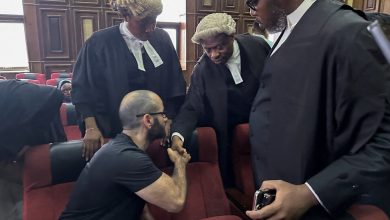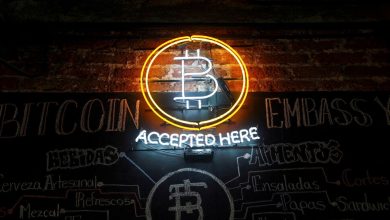The Jan. 6 Committee’s Consideration of a Criminal Referral, Explained

WASHINGTON — The House committee investigating the Jan. 6 attack on the Capitol is in the early stages of considering whether to make criminal referrals to the Justice Department that would urge prosecuting former President Donald J. Trump or his allies.
That’s not the primary mission of the committee, which is planning to write a comprehensive report about what led to the violence on Jan. 6 while making recommendations to try to avoid anything like it happening again. But as the committee and its dozens of investigators issue subpoenas for documents, phone records and bank records, the panel is closely looking for evidence of criminality that the Justice Department might not have unearthed.
Here is a breakdown of some of the issues confronting to committee.
What is a criminal referral?
A criminal referral from Congress would merely be a recommendation for the Justice Department to investigate a case. It would carry no legal weight, since Congress has no authority to tell federal prosecutors what charges to pursue. But given that the Jan. 6 committee’s staff is led by a bipartisan pair of former U.S. attorneys, any recommendation they make would most likely be taken seriously by federal prosecutors.
A referral could also have a substantial political impact by increasing public pressure on Attorney General Merrick B. Garland, who has largely sidestepped questions about what prosecutors are doing to examine the conduct of Mr. Trump and his aides as they promoted baseless allegations of voter fraud.
For at least one crime, however, a congressional referral does carry a legal order. If the House votes to find someone in contempt of Congress, the Justice Department is obligated to bring the case to a grand jury.
Understand the U.S. Capitol Riot
On Jan. 6, 2021, a pro-Trump mob stormed the Capitol.
- What Happened: Here’s the most complete picture to date of what happened — and why.
- Timeline of Jan. 6: A presidential rally turned into a Capitol rampage in a critical two-hour time period. Here’s how.
- Key Takeaways: Here are some of the major revelations from The Times’s riot footage analysis.
- Death Toll: Five people died in the riot. Here’s what we know about them.
- Decoding the Riot Iconography: What do the symbols, slogans and images on display during the violence really mean?
What lines of inquiry could the committee pursue?
Investigators are looking into whether a range of crimes were committed, including whether there was wire fraud by Republicans who raised millions of dollars by promoting assertions that the 2020 presidential election was stolen, despite knowing the claims were not true. As investigators scrutinize these fund-raising efforts, they are examining whether any campaign finance laws or regulations governing how nonprofits may spend their money were broken.
The committee is also examining whether Mr. Trump and his allies obstructed Congress by trying to stop the certification of electoral votes. Representative Liz Cheney, Republican of Wyoming and the vice chairwoman of the committee, has suggested that Mr. Trump could have violated “through action or inaction” a previously obscure obstruction charge that federal prosecutors have been using to pursue rioters at the Capitol on Jan. 6: the disruption of Congress’s duty to certify the final stage of a presidential election.
Pursuing a criminal charge for “inaction” by a president would be a novel strategy in uncharted legal waters. For any high-ranking member of the federal government to be charged under such a legal theory, prosecutors would need to establish that the official had a specific duty to act to restore order that was violated.
Christopher C. Miller, who was the acting defense secretary on Jan. 6, has testified before Congress that Mr. Trump did not call him during the attack, but he said that Vice President Mike Pence did call and ask the military to clear the Capitol. Mr. Miller said that no call from Mr. Trump was needed because “I had all the authority I needed” to deploy the National Guard.
“Generally speaking, omissions aren’t crimes,” said David Alan Sklansky, a law professor and co-director of the Stanford Criminal Justice Center. “But they can be crimes when somebody has a particular duty. So, if you’re talking about an officer of the United States, who has a duty and fails to perform that duty, and the failure to perform that duty causes interference with Congress’s ability to carry out its job, that could be a crime.”
The committee could also pursue cases such as lying under oath, intimidating a witness or contempt of Congress for witnesses who stonewall its subpoenas. Already the House has voted to send two contempt of Congress referrals to the Justice Department for Mr. Trump’s former chief strategist, Stephen K. Bannon, and his former chief of staff Mark Meadows.
A grand jury has indicted Mr. Bannon, but has not yet made a decision about Mr. Meadows’s case.
What about dereliction of duty?
Ms. Cheney said this weekend that she believed Mr. Trump was ethically and morally derelict in his duty on Jan. 6 as he delayed for hours before issuing a video calling off the mob violence.
“One of the things the committee needs to look at,” Ms. Cheney said on ABC’s “This Week,” “is whether we need enhanced penalties for that kind of dereliction of duty.”
Key Figures in the Jan. 6 Inquiry
The House investigation. A select committee is scrutinizing the causes of the Jan. 6 riot at the U.S. Capitol, which occurred as Congress met to formalize Joe Biden’s election victory amid various efforts to overturn the results. Here are some people being examined by the panel:
Donald Trump. The former president’s movement and communications on Jan. 6 appear to be a focus of the inquiry. But Mr. Trump has attempted to shield his records, invoking executive privilege. The dispute is making its way through the courts.
Mark Meadows. Mr. Trump’s chief of staff, who initially provided the panel with a trove of documents that showed the extent of his role in the efforts to overturn the election, is now refusing to cooperate. The House voted to recommend holding Mr. Meadows in criminal contempt of Congress.
Scott Perry and Jim Jordan. The Republican representatives of Pennsylvania and Ohio are among a group of G.O.P. congressmen who were deeply involved in efforts to overturn the election. Mr. Perry has refused to meet with the panel.
Phil Waldron. The retired Army colonel has been under scrutiny since a 38-page PowerPoint document he circulated on Capitol Hill was turned over to the panel by Mr. Meadows. The document contained extreme plans to overturn the election.
Fox News anchors. Laura Ingraham, Sean Hannity and Brian Kilmeade texted Mr. Meadows during the Jan. 6 riot urging him to persuade Mr. Trump to make an effort to stop it. The texts were part of the material that Mr. Meadows had turned over to the panel.
Steve Bannon. The former Trump aide has been charged with contempt of Congress for refusing to comply with a subpoena, claiming protection under executive privilege even though he was an outside adviser. His trial is scheduled for next summer.
Michael Flynn. Mr. Trump’s former national security adviser attended an Oval Office meeting on Dec. 18 in which participants discussed seizing voting machines and invoking certain national security emergency powers. Mr. Flynn has filed a lawsuit to block the panel’s subpoenas.
Jeffrey Clark. The little-known official repeatedly pushed his colleagues at the Justice Department to help Mr. Trump undo his loss. The panel has recommended that Mr. Clark be held in criminal contempt of Congress for refusing to cooperate.
John Eastman. The lawyer has been the subject of intense scrutiny since writing a memo that laid out how Mr. Trump could stay in power. Mr. Eastman was present at a meeting of Trump allies at the Willard Hotel that has become a prime focus of the panel.
Ms. Cheney was not suggesting a specific charge of “dereliction of duty” against Mr. Trump, her spokesman said. Rather, she thinks the committee should explore whether to recommend changes to current laws that could hold a future president accountable. She also wants the public to be aware of how Mr. Trump waited hours before calling off the mob, according to her office.
Why is the committee looking for criminality? Isn’t that the Justice Department’s role?
While pursuing criminal charges is the role of the Justice Department, the committee’s robust staff means it could uncover evidence as it does its work. With more than 40 staff members, including former federal prosecutors carrying out the investigation, the panel has interviewed more than 300 witnesses and obtained more than 35,000 documents.
“If they find evidence of something that they think is a crime and they think the Department of Justice should consider prosecuting, it seems to me completely appropriate for them to call it to the attention of the Department of Justice,” Mr. Sklansky said.
What happens next?
If the committee does decide to make a referral, the case will reside in the hands of the Justice Department, where prosecutors will determine whether there is probable cause that a crime occurred and weigh their ability to prove the case beyond a reasonable doubt.
Mr. Garland testified before Congress in October that the department was not limiting its investigation to just low-level rioters as it examines the Jan. 6 attack. Even so, he said he could not comment further on what next steps the agency would take.
“I’m very limited as to what I can say,” Mr. Garland said. “The investigation is being conducted by the prosecutors in the U.S. attorney’s office and by the F.B.I. field office. We have not constrained them in any way.”




